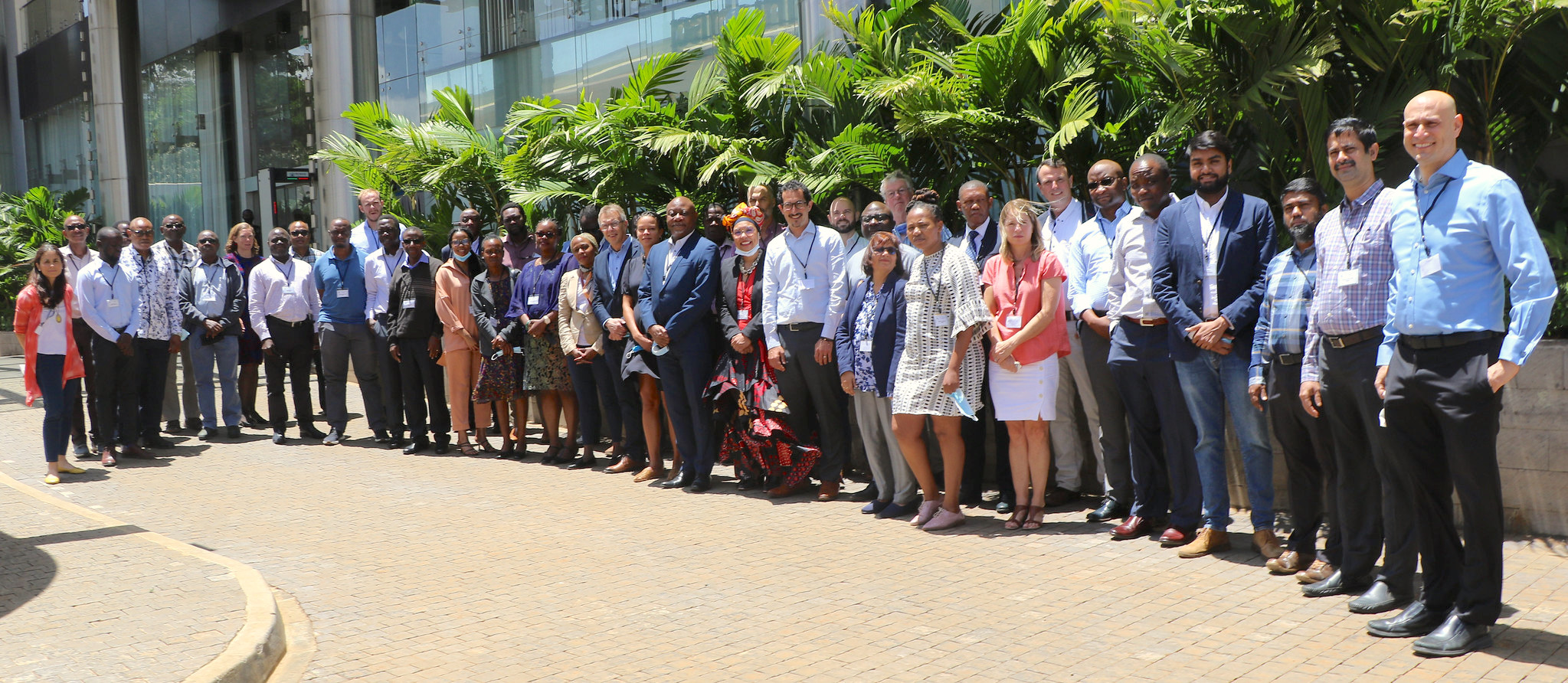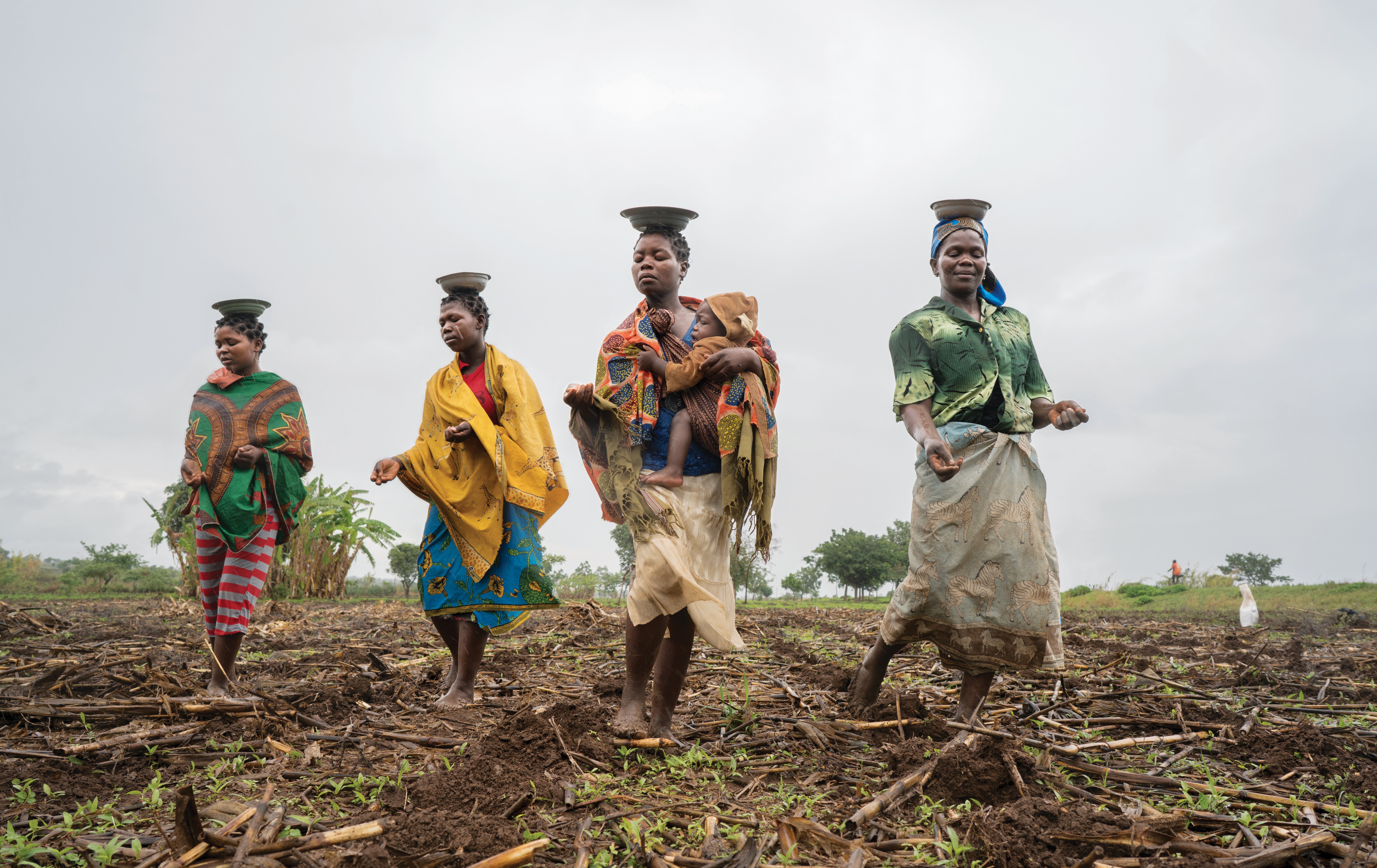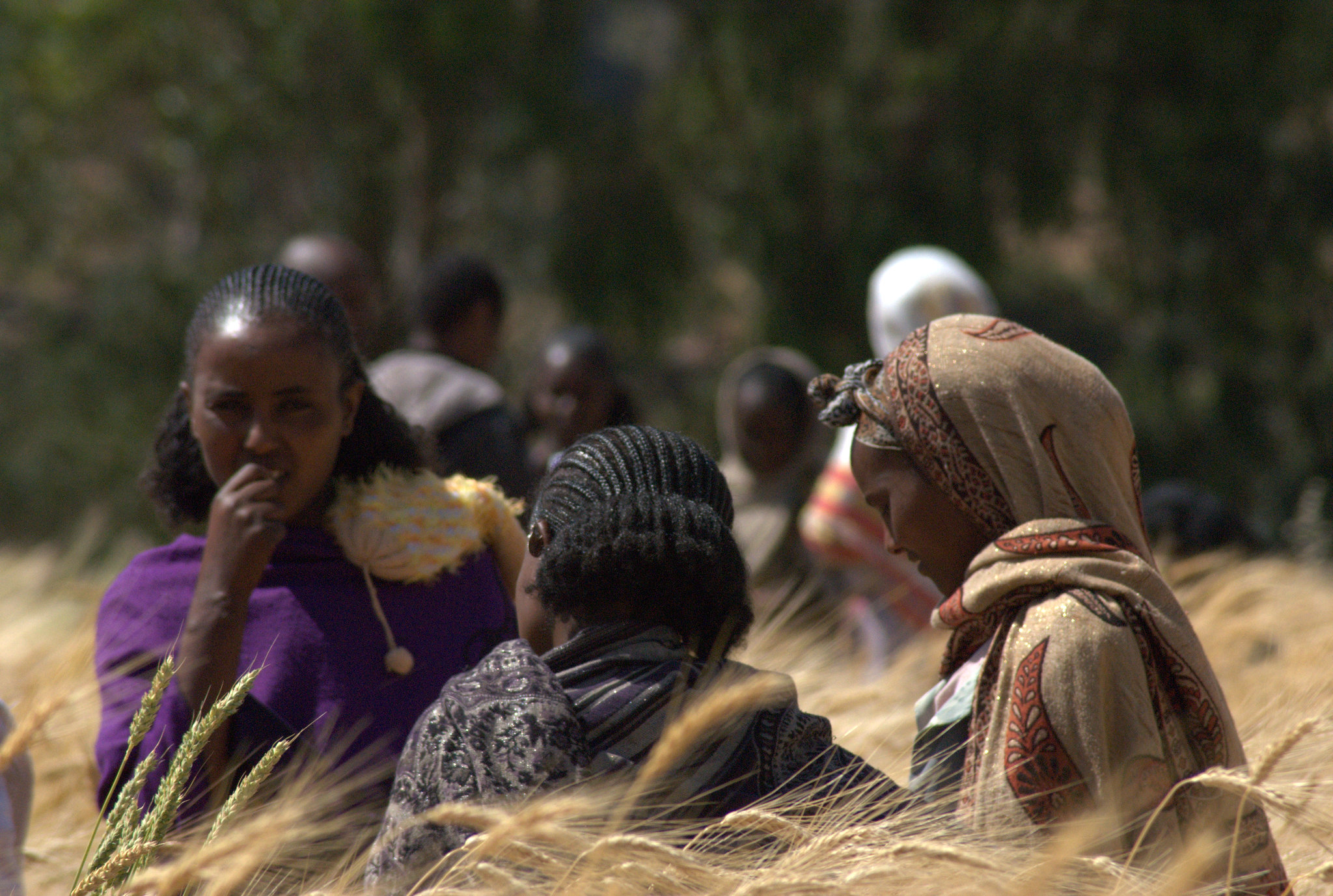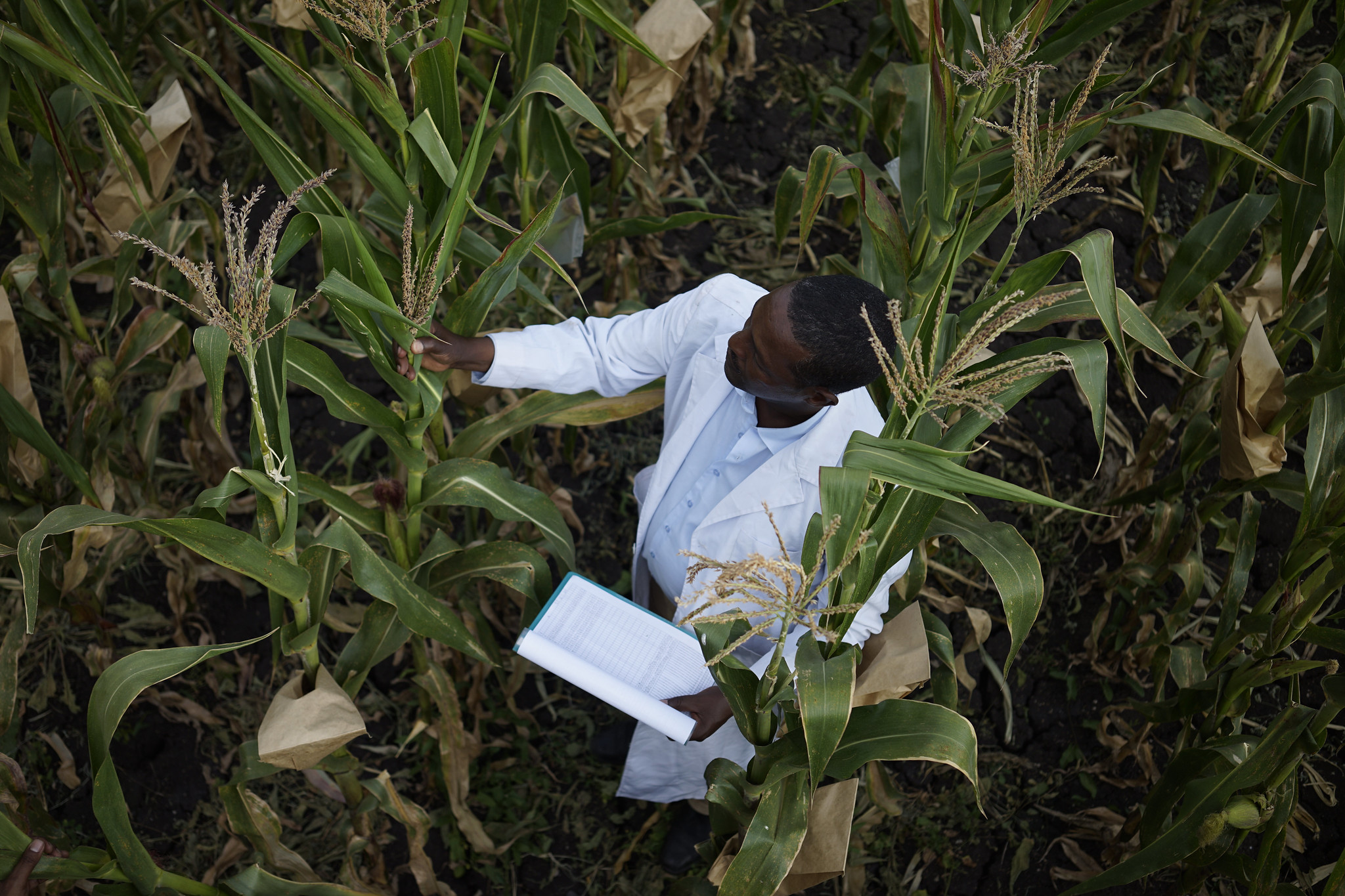
Partners of CGIAR’s new regional integrated Initiative in eastern and southern Africa held a kick-off meeting in Nairobi on March 2–3, 2022. Eighty-five people participated, including national agricultural research extension programs, government representatives, private sector actors, funders and national and regional agricultural research and development organizations.
Entitled Ukama Ustawi, the Initiative aims to support climate-smart agriculture and livelihoods in 12 countries in eastern and southern Africa: Kenya, Zambia, Ethiopia and Zimbabwe (in Phase 1); Malawi, Rwanda, Tanzania and Uganda (in Phase 2); and Eswatini, Madagascar, Mozambique and South Africa (in Phase 3).
The Initiative aims to help millions of smallholders intensify, diversify and de-risk maize-mixed farming through improved extension services, institutional capacity strengthening, targeted farm management bundles, policy support, enterprise development and private investment.
Ukama Ustawi is a bilingual word derived from the Shona and Swahili languages. In Shona, Ukama refers to partnerships, and in Swahili, Ustawi means well-being and development. Together, they resemble the vision for the Initiative to achieve system-level development through innovative partnerships.
The meeting brought together partners to get to know each other, understand roles and responsibilities, identify priorities for 2022, and review the cross-cutting programmatic underpinnings of Ukama Ustawi — including gender and social inclusion, capacity strengthening and learning.
Baitsi Podisi, representing the Centre for Coordination of Agricultural Research and Development for Southern Africa (CCARDESA), said he is excited to be part of the Initiative: “CCARDESA, in its cooperation and coordination mandate, can learn a lot from CGIAR in restructuring to respond to the changing times.” Podisi supported the partnership with CGIAR in the Initiative’s embedded approach to policy dialogue, working with partners such as CCARDESA, the Association for Strengthening Agricultural Research in Eastern and Central Africa (ASARECA) and the Food, Agriculture and Natural Resources Policy Analysis Network (FANRPAN).
Similarly, FANRPAN’s Francis Hale emphasized the need not to re-invent the wheel but to work with partners who already have a convening power, to advance the policy agenda for diversification and sustainable intensification.
What were key issues discussed?
One of the features of Ukama Ustawi is the use of four interconnected platforms: a scaling hub, a policy hub, an accelerator program and a learning platform. These will provide spaces for exchange and learning with partners across all CGIAR Initiatives in the region. Partners conducted a series of ‘fishbowl’ interactions across work packages to review the planned activities and provide a clearer understanding of deliverables, identify synergies, potential overlaps, common partners and countries, and set timelines.
The Initiative will work with innovative multimedia platforms to change knowledge, attitudes and practices of millions of farmers in eastern and southern Africa. One key partner in this area is the Shamba Shape Up TV show and the iShamba digital platform. Sophie Rottman, Producer of Shamba Shape Up, said she is looking forward to the work with Initiative partners, that will help expand the show to Uganda and Zambia.
Jean Claude Rubyogo, representing the Pan-Africa Bean Research Alliance (PABRA) said: “It is time we move away from CGIAR-initiated to country-initiated development activities. This is what Ukama Ustawi is all about”.
Martin Kropff, Global Director of Resilient Agrifood Systems at CGIAR, explained CGIAR’s regional integrated initiatives are designed to respond to national/regional demands. “The initiatives will start by working with partners to assess the food and nutritional challenges in the region, and tackle them by bringing in innovative solutions.”
The event was concluded by agreeing on the implementation of the inception phase of the Ukama Ustawi Initiative, and follow-on discussions to finalize key activities in 2022.
Learn more about the Ukama Ustawi Initiative.
Materials from the meeting are available online:
- Core partners kick-off meeting – Ukama Ustawi (UU): Diversification for Resilient Agrifood systems in East and Southern Africa
- Regional Integrated Initiatives: East and Southern Africa Regional Integrated Initiative Ukama Ustawi – Inception Meeting
- Overview of CGIAR priorities in the eastern and southern Africa region
- Innovation packages and Scaling readiness as a framework for optimizing Regional Integrated Initiatives-Global Science Initiative linkages
- ClimBeR – Data management plan and data repository
This article was originally published on CGIAR.org.

 Climate adaptation and mitigation
Climate adaptation and mitigation 
